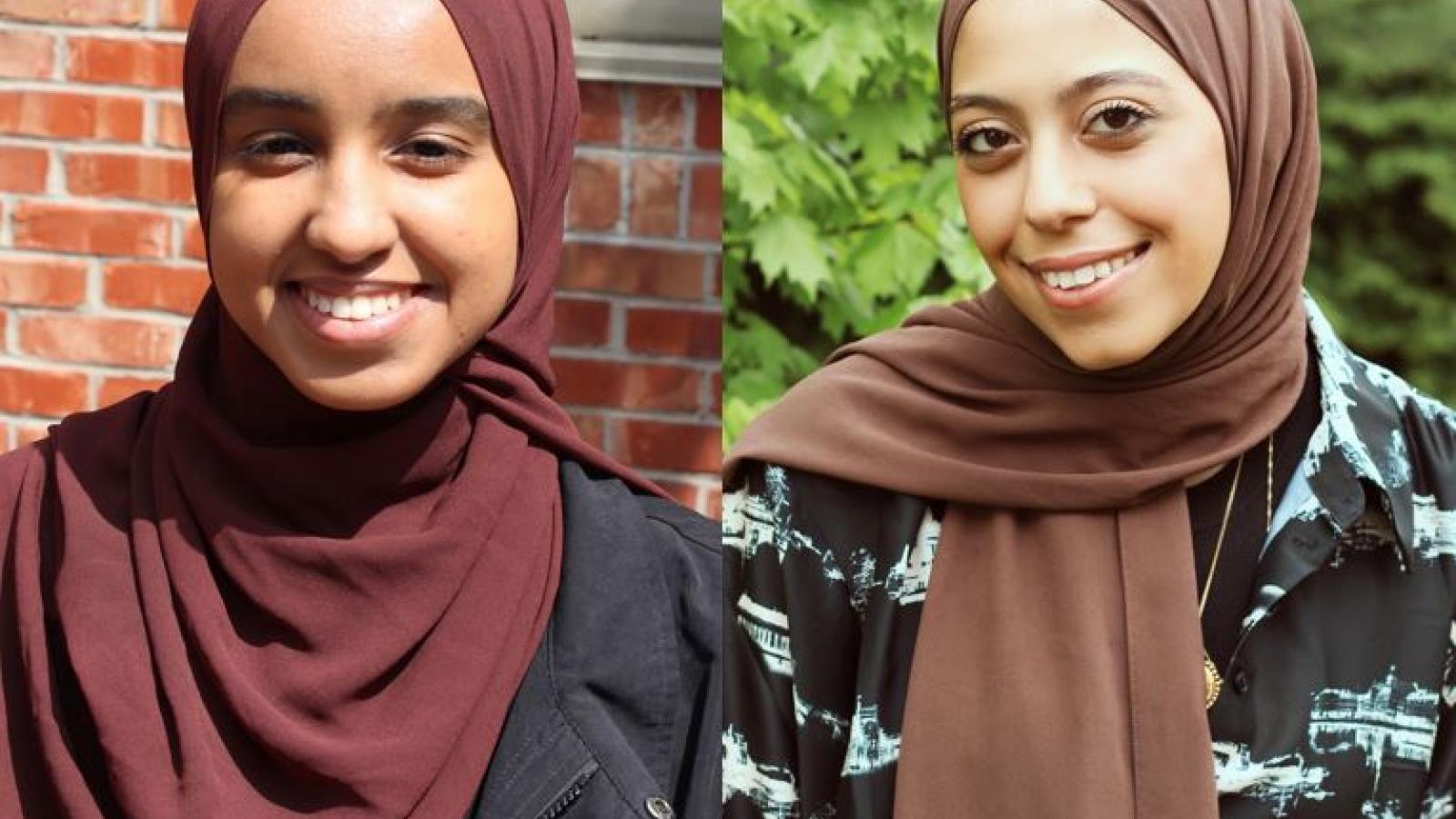
Left to right: Sakiyo Mohamud and Dana Hamed
Written by Janet Weisenberger
It started with a simple question among a group of undergraduate students attending a professor’s office hours. The discussion was about the fact that many ethnic communities in the Columbus area do not take advantage of audiology and speech-language pathology services in our clinic or other clinics in the area. Sakiyo Mohamud and Dana Hamed, both third-year undergraduates in Speech and Hearing Science, asked, “Would it ever be possible to offer hearing screenings at a local mosque? People might be more comfortable if it happened in a place they already attended.”
Gail Whitelaw, Clinical Associate Professor and Director of the Ohio State University Speech-Language-Hearing Clinic, enthusiastically embraced the idea. Dr. Whitelaw, Dana, and Sakiyo formed a plan: Dana and Sakiyo used their connections in the local Muslim community to engage with the Noor Islamic Cultural Center, which readily agreed to host a screening event. Sakiyo and Dana created and posted flyers to advertise the event. Dr. Whitelaw provided training for both of them in how to conduct hearing screenings. On the evening of the screenings, Dr. Whitelaw, Sakiyo, Dana, and several graduate clinicians headed to the Noor Islamic Cultural Center, where they were able to provide hearing screenings for a variety of individuals, from children to older adults.
Sakiyo afterwards said, “I was amazed to see such a wide demographic show up to get their hearing checked. There were both older folks who could have been dealing with possible age-related hearing loss and very young children who may have been left undiagnosed. This experience opened my eyes and made me realize that all this was very much needed in our Muslim community, so I am glad we had taken this step.”
Dr. Whitelaw added, “When we provide this type of opportunity in the community, it reaches people in a way that is convenient and trusted. Although we screened many people there, we really did get to focus on older adults and children, both populations that had people with them (their adult children or their parents) who expressed concern over hearing. It was great to provide a person-centered approach in an environment where family input was appreciated and supported by those being screened and we could provide information and answer questions for all.”
Several individuals at the screening were referred to the clinic for further evaluation and intervention, giving them access to additional services. The mosque has inquired about additional screening events, and Dana and Sakiyo are excited about the possibility of making this a regular occurrence.
For Sakiyo and Dana, this event allowed them to connect their undergraduate major education to clinical service delivery, to be trained in administering hearing screenings, and to bring needed health services to their community. Most importantly, it provided them with a hands-on view of the value of clinicians who come from the communities they wish to serve. Their membership and connections in the local Muslim community created the trust that made this new contact possible, and their motivation and follow-through made it a success.
